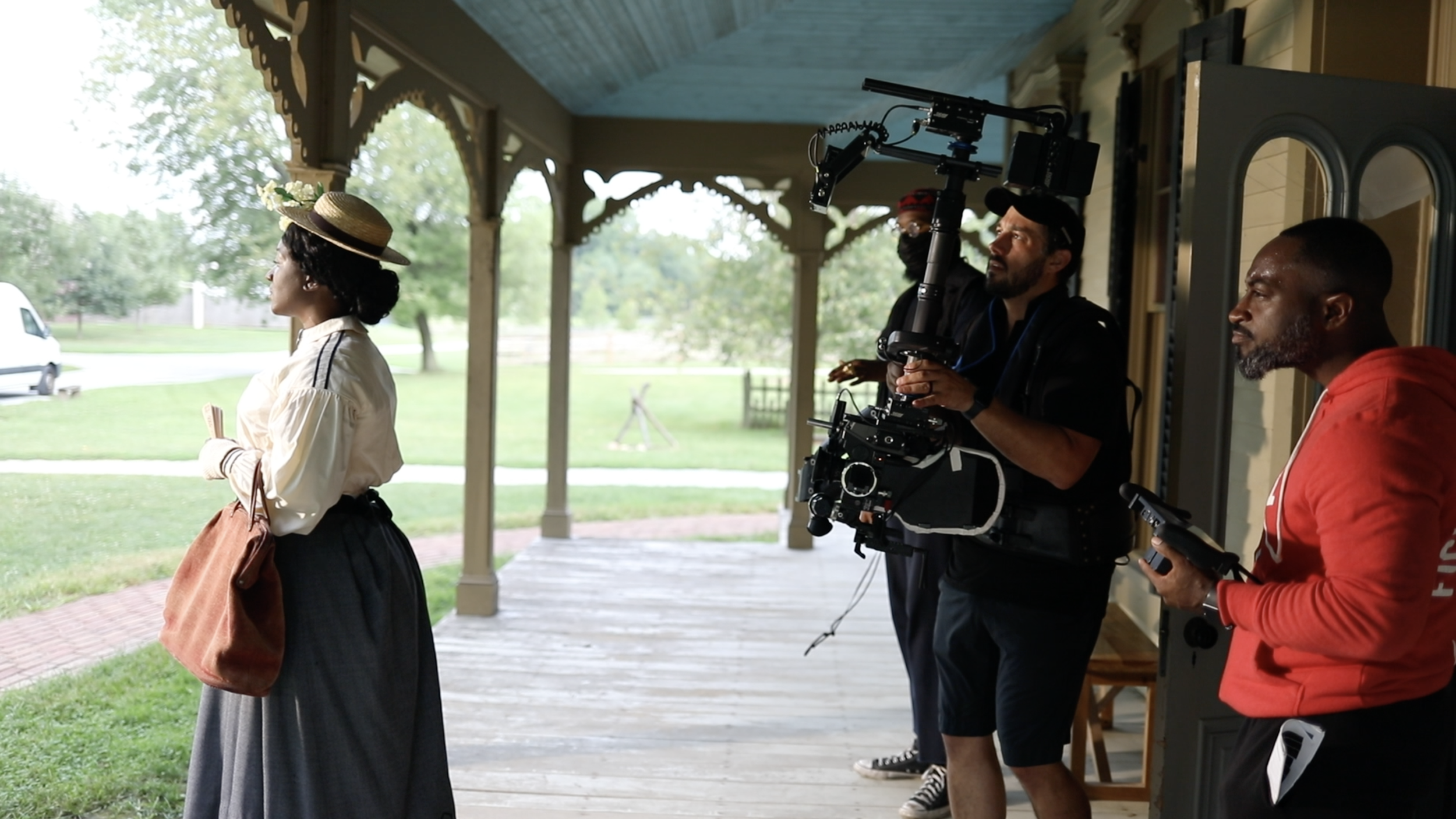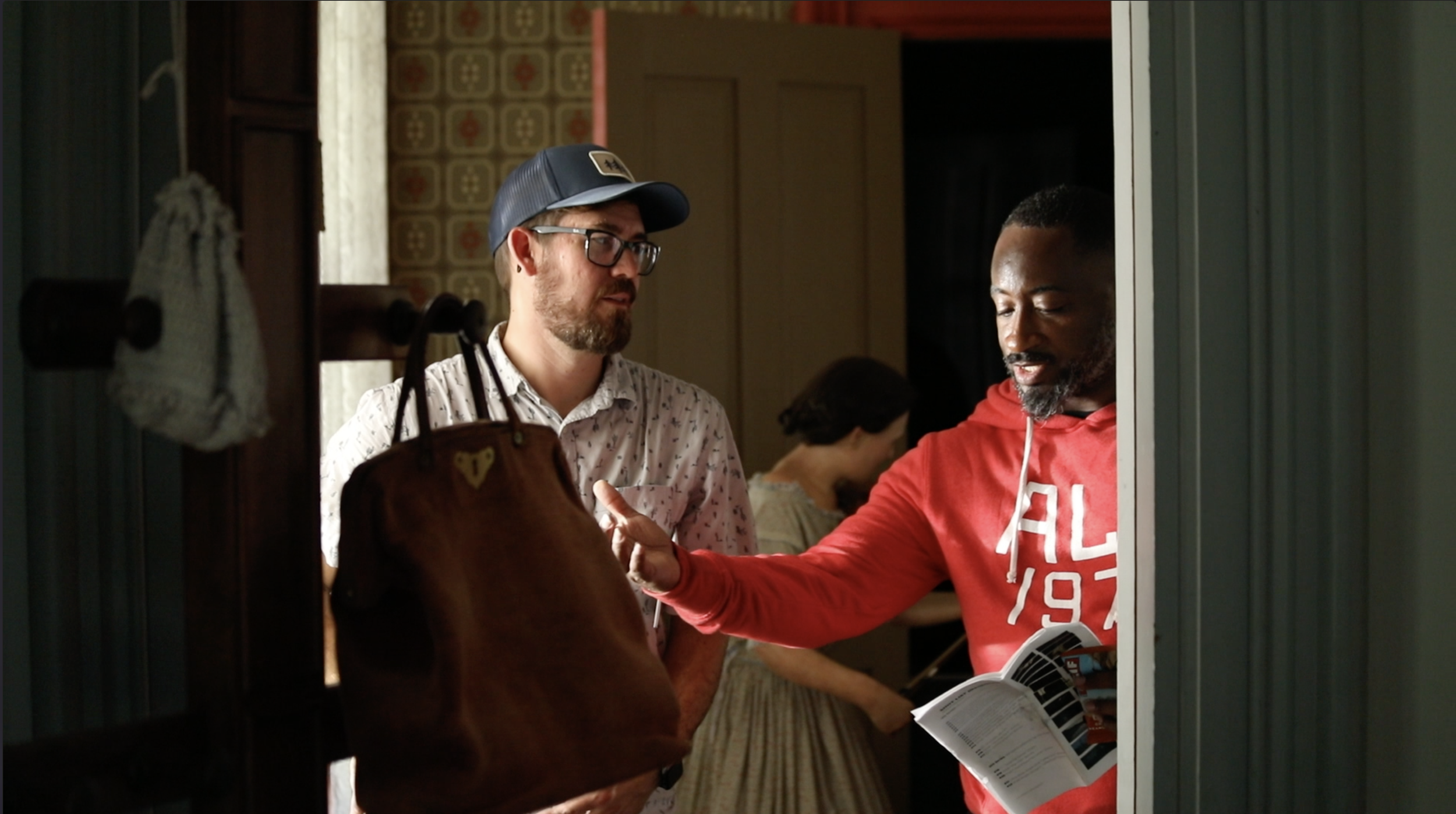IRA MALLORY
“Child of God” - Blxst
Ira Mallory is an Indiana-based film director and founder of IRA FILMS/BJYL PRODUCTIONS LLC, who began his education at Fox Searchlight’s Director’s Labs in Los Angeles and continued at Indiana University. He has directed over a dozen films, including the 2020 documentary "in Closing," and the award-winning "Hadassah: Queen Esther," showcased at international festivals. In 2023, he co-directed Super Bowl commercials for the "Promise Land as Proving Ground" exhibit at Conner Prairie Museum. Mallory's films are housed by the Black Film Center & Archive at Indiana University, and he serves on the advisory board of the Indianapolis Black Documentary Film Festival while teaching at 40 West Digital in Indianapolis.
Artist Interview
1. How do you overcome creative burnout/ artist block?
I avoid artist block by what I term “keeping my eyes and heart open” I do so by studying films constantly, reading books, exploring new topics, engaging with my community, faithfully watching the news and listening when people share their experiences. Burnout is something I work to avoid by being intentional with rest time and doing things I enjoy daily or weekly at best.
2. What motivates you to keep creating?
Using my artistic talent is my obligation, it’s simply a passion. Passion levels and eventually can burn out. An obligation is something you never walk away from, even when things get difficult, I know that I have been given a gift and it is my duty to use it.
3. Is there anything outside of art that you practice?
I enjoy practicing martial arts, collecting, engaging in my work within the Jewish community in Indiana and beyond, all of this is practice in being a more complete human being.
4.What does being an artist mean to you?
It means communicating with the human soul through honest, crafted self expression. When I make a film I am having a conversation with my audience and explaining to them my prospective with how I execute the story.
5.How long have you been creating?
I feel like I have been creating since I was five years old when I began to draw (not very well) the things around me and then being exposed to movies, I began to imagine and write short stories before I was a teen.
6. Tell us about a specific experience that helped shape you as an artist.
One experience that changed my life was meeting the late great John Singleton in Los Angeles on the Fox Lot. He and F. Gary Gray were among a short list of director’s and producers conducting a Master Class in directing. Attending that workshop with those two American cinema giants changed everything for me. Listening to them speak made believe I could do anything as a director.
7.What is something you wish the past you knew and what is something that you would like to tell your future self?
Never doubt yourself and that your ideas are just as good as anyone’s.
8. How do you know when a piece of work needs more work and when it is finished?
I know it is finished when I’ve shared it with trusted collaborators. Film is the most collaborative art form in the world, so it really is important to get ideas from many directions while trusting your own instincts.
9. How do you handle criticism of your work?
I take criticism with the prospective that it is important to know who your audience is early in the process of writing and or directing a film. You will never please everyone, so know your audience.
10. What are your long term goals?
Much like Clint Eastwood, I want to make films for the rest of my life. Along the way I’d like to help another filmmaker be successful and make the film they have in their head. I enjoyed being nominated for two Emmys last year and my goal is to repeat that.
11. What is something you struggle with?
Saying no and being stingy with my time.
12. Do you have a mentor? Do you think having one is important?
I never really had a mentor in film, but in life yes, my brother Percy, my sister Nicole, they always encouraged me, believed in me and gave me examples for work ethic, self expression, loyalty and staying true to yourself.
13. What are you doing to ensure that you are continuing to grow and develop as an artist?
I have not arrived, know that is some much more for me to learn is key. I always recall Spike Lee saying he is a lifetime student. If one of our icons can say that, it means we all are students no matter what we accomplish. So I continue to study, read, try new things and most important pay attention to the always evolving human condition here in the United States and globally.
14. What role do you think artists have in society?
Black Americans have either originated or influenced so many of America’s art forms I feel a great sense of pride being a part of that legacy. Artist have a role in influencing public opinion, intergroup perceptions and how people see themselves individually. As a Black American my specific role is to ensure there’s balance in who gets to tell stories how story’s are told and that we have a variety of stories.
15. How has being an artist affected the way you express yourself & communicate with others?
I am more confident, authentic and curious because I am an artist. Being an artist means often times innately looking beyond the surface and exploring the deeper meaning in words and interactions.
16. Has your relationship with yourself changed because of the art you create?
In the words of Kendrick Lamar “I love myself”. My art journey has taught me a lot about my own courage, tenacity, sensitivity to those who aren’t like me and the levels to which I will go to be sure something gets done and gets done the right way. These are things one can package and take with them for any endeavor in life, I certainly do.
GALLERY


